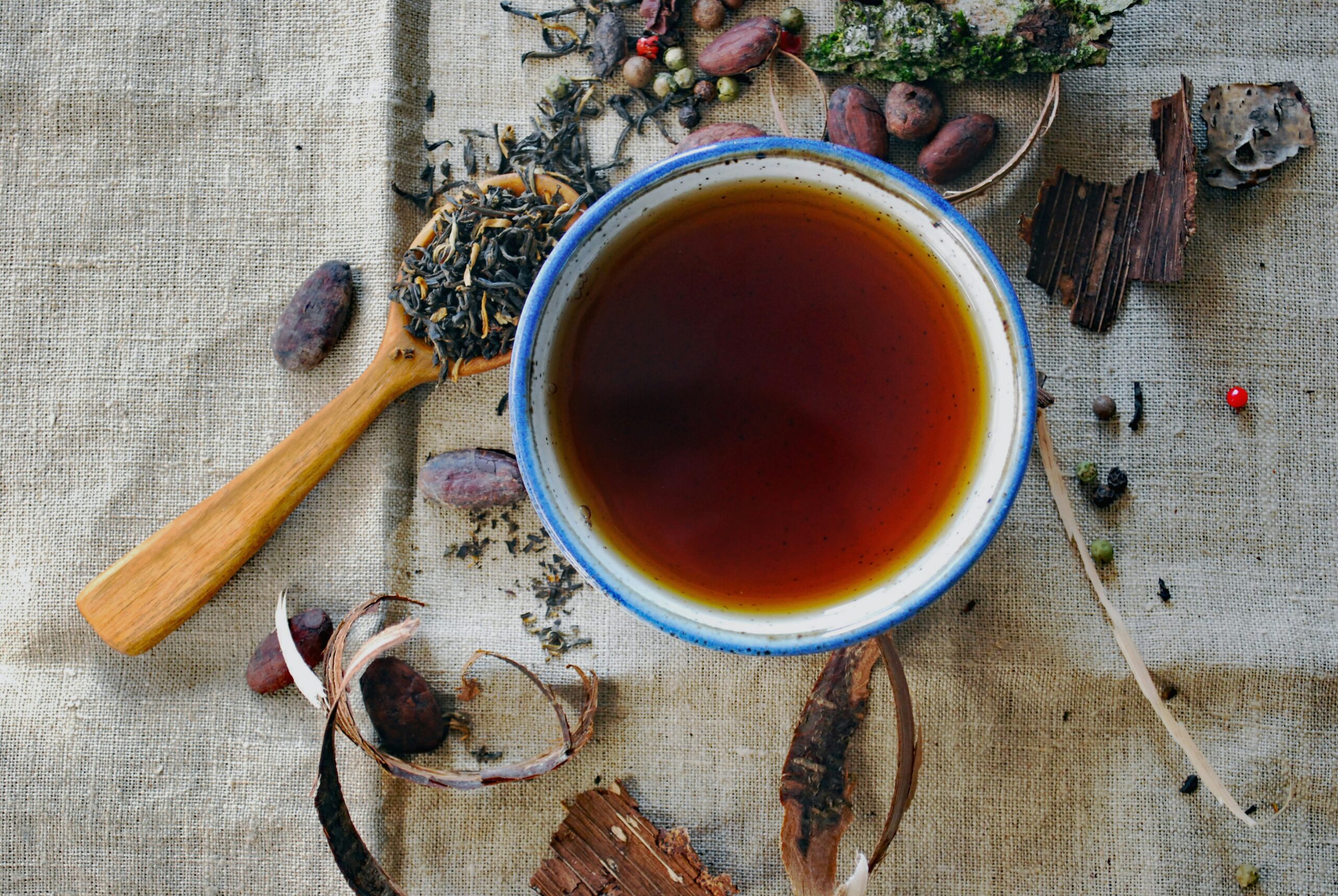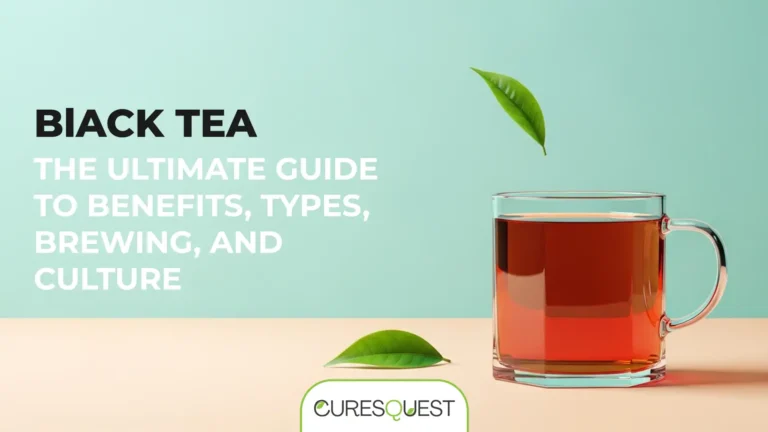Book Appointment Now

What Happens If You Drink Tea Every Day?
Imagine starting your day with the soothing warmth of a fresh cup of tea. The steam curls up as you take that first sip. For countless people, this moment sets a peaceful tone. But beyond the comfort, what truly unfolds in your body with this daily practice? Does it fortify your health like a quiet guardian, or might it introduce unexpected twists?
Daily tea drinking has sparked curiosity for ages. It blends tradition with modern science. In this piece, we’ll explore the upsides, from antioxidant surges that combat daily wear to heart-supporting effects that keep things steady. We’ll also touch on potential downsides, like caffeine sensitivities or nutrient hiccups. Backed by fresh insights and personal anecdotes, you’ll gain practical steps to make tea your ally. Let’s brew up some clarity on how this habit shapes you.
The Health Benefits of Daily Tea Consumption
Sipping tea each day goes beyond a cozy routine. It acts like a steady stream of support for your body’s systems. Loaded with natural compounds from the Camellia sinensis plant, tea delivers subtle enhancements that accumulate over time.
For more insights into the world of teas, refer to the article Tea History, Types, Benefits, and Culture.
Boosting Your Antioxidant Power
Tea brims with antioxidants such as polyphenols, catechins, and flavonoids. These elements shield your cells from oxidative stress caused by environmental factors and daily life. Regular intake can lead to feeling more vibrant, as if you’ve equipped yourself with a natural defense layer.
Consider a hectic professional who swaps midday slumps for green tea breaks. They often notice sustained energy without crashes. Recent studies highlight how these antioxidants curb inflammation and promote longevity, making daily tea a smart choice for ongoing vitality.
Supporting Heart Health
Your cardiovascular system reaps significant rewards from consistent tea habits. It can help reduce LDL cholesterol and enhance blood flow, lowering risks of heart issues. Picture it as gently clearing pathways for smoother circulation.
A acquaintance of mine, facing borderline high blood pressure, added two daily cups of black tea. Gradually, her checkups showed improvements. This aligns with evidence linking tea to better cholesterol levels and reduced stroke chances. For complementary strategies, see our guide on heart-healthy diets.
Enhancing Mental Clarity and Mood
That afternoon tea might sharpen your focus more than you think. L-theanine pairs with caffeine to foster alert calmness, easing stress while boosting attention. It’s like dialing in the perfect mental balance for productivity.
From my writing days, I recall relying on oolong during tight deadlines. It cut through fog without jitters. Experts note tea’s role in brain health, potentially warding off cognitive decline over years. Dive deeper with Harvard Health’s take on tea benefits.
Aiding Digestion and Weight Management
Certain teas soothe your digestive tract, reducing bloating and promoting regularity. Green varieties, in particular, may rev up metabolism, assisting in weight control when combined with movement.
Think of it as a helpful nudge in your wellness path. I’ve advised friends to blend matcha into routines, watching them shed stubborn pounds steadily. It’s about synergy, not shortcuts.
Potential Side Effects and Risks of Drinking Tea Every Day
While tea offers plenty of positives, moderation matters. Overindulgence or individual sensitivities can flip the script. Paying attention to how your body responds keeps things in check.
Caffeine-Related Concerns
Caffeine in tea can spark restlessness, sleep troubles, or heightened anxiety if overdone. It’s similar to pushing a limit that varies person to person. Sensitive groups, like expectant mothers, benefit from capping intake.
One tea enthusiast I know dialed back after evening cups disrupted rest. Opting for herbal switches post-lunch restored balance. This echoes warnings about excessive caffeine’s toll.
Iron Absorption Interference
Tannins might hinder iron uptake from foods, risking shortages for some diets. Timing tea between meals minimizes this. It’s a small adjustment for big harmony.
Vegetarians especially should note this. Reliable advice from sources like the WebMD on tea benefits stresses mindful consumption.
Other Possible Drawbacks
Excess can lead to tooth discoloration or tummy discomfort, especially fasting. Fluoride buildup is rare but worth watching in heavy drinkers. If issues arise, lighter options help.
Explore gentler alternatives in our post on best herbal teas.
Different Types of Tea and Their Unique Effects
Variety spices up tea’s impact. Each type offers tailored perks, letting you customize based on needs. It’s like selecting the right key for a lock.
- Green Tea: Rich in EGCG for metabolism and skin glow.
- Black Tea: Bold with theaflavins for immunity and gut aid.
- Oolong Tea: Balanced for weight support through oxidation.
- Herbal Teas: No caffeine, like chamomile for calm or ginger for settling.
- White Tea: Mild yet potent in antioxidants, easy on digestion.
Try sampling weekly to discover favorites. Compare energies in our tea vs. coffee breakdown.
How Much Tea Should You Drink Daily?
Target 2-3 cups for optimal gains without hitches. Adjust for personal factors like health status or brew intensity. Stronger teas deliver more in smaller doses.
It’s akin to finding your sweet spot in exercise. Newbies, ease in. Guidelines suggest this range for safety.
Tips for Incorporating Tea into Your Daily Routine
| Tip | How to Implement | Benefit |
|---|---|---|
| Replace Sugary Drinks | Swap sodas or juices with unsweetened iced tea | Reduces sugar intake, supports hydration |
| Choose Quality Tea | Use loose leaf tea instead of bags | Richer flavor, more nutrients |
| Pair with Light Bites | Have a small snack alongside tea | Balances tannins, improves digestion |
| Track Your Experience | Log your favorite teas, brewing times, and effects | Helps refine your choices and preferences |
| Add Flavor Twists | Incorporate citrus, herbs, or spices | Enhances taste and keeps routine enjoyable |
| Opt for Decaf Later | Switch to decaf in the evening | Protects sleep while maintaining habit |
Building a tea habit is straightforward and rewarding. Begin by subbing sugary drinks with unsweetened iced tea. Set cues for consistency.
- Choose quality loose leaves for richer taste and nutrients.
- Complement with light bites to offset tannins.
- Log your experiences to refine choices.
- Add twists like citrus or herbs for freshness.
- Go decaf later to safeguard slumber.
These habits anchor tea as a wellness staple, much like consistent steps build fitness.
Conclusion
Drinking tea every day can flood your system with antioxidants, fortify your heart, clarify your mind, and ease digestion. Yet side effects like caffeine woes underscore the need for balance. Fresh research affirms these effects, from immune boosts to stress relief.
Why not brew a cup now and tune into your body’s response? Embrace variety and moderation for lasting perks. Here’s to making tea a joyful, health-enhancing part of your days.
FAQ
Is it safe to drink tea every day?
For most, yes, 2-4 cups daily hydrates and nourishes safely. Watch for caffeine if sensitive. Consult pros if conditions apply.
What are the main benefits of drinking tea every day?
Expect antioxidant shields, heart support, mental sharpness, and digestive ease. Consistency amplifies these with lifestyle ties.
Can drinking tea every day cause weight gain?
No, unsweetened tea aids weight by zero calories and metabolism lift. Sugary adds pack on. Keep it pure.
Does drinking tea every day affect sleep?
Late caffeinated sips might. Shift to herbal evenings for restful nights. Chamomile excels here.
Which tea is best to drink every day?
Green for antioxidants, but pick per goal. Rotate for breadth. Love drives sustainability.
Can children drink tea every day?
Moderately, favoring low-caffeine herbals. Limit for young ones to dodge unrest. Fun blends encourage habits.
Does drinking tea every day stain teeth?
Darker teas can. Rinse or straw-use counters. Dental upkeep maintains brightness.
Is there a best time to drink tea every day?
Mornings energize, afternoons sustain, decaf nights relax. Avoid empty stomachs if prone to upset.







